What is anxiety?
- Published
WATCH: Ariana Grande says she still struggles with anxiety
Feeling anxious can happen when we feel nervous, frightened or uneasy about something.
It is okay to feel this way from time to time, as it is our body's natural response to a situation we are not comfortable with.
However, some people feel it more often than others and it can have a difficult impact on their lives.
Celebrities like Zayn Malik and Selena Gomez have spoken about how they have struggled with anxiety.
Anxiety and depression explained
In 2017, Selena Gomez announced she would be taking a break from music to deal with problems with anxiety and depression, as they can sometimes come together.
She made a speech at the American Music Awards where she said she "had to stop" because of the effect it had on her.
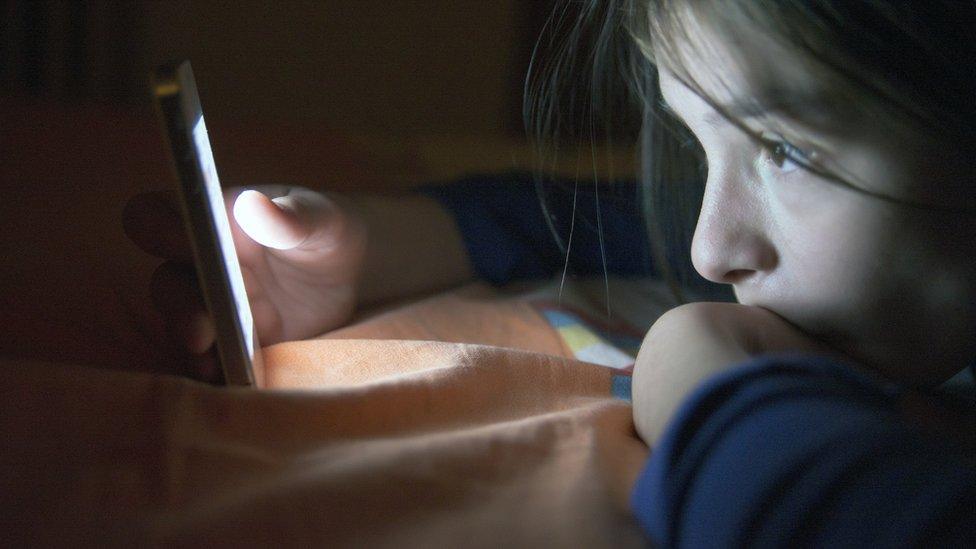
More children have been receiving help from Childline for anxiety problems in the last year than in the year before
The children's charity Childline said they have noticed an increase in the number of children and young people who they are helping for anxiety, from 8,642 in 2014/15 to 11,706 in 2015/16. This is a 35% increase.
Newsround spoke to an expert on mental health from the charity Mind, Stephen Buckley, to find out more about anxiety, what can cause it and what you can do if you're worried that it's something that's affecting you.
CBBC Lifebabble: One girl's story about anxiety
What is anxiety?
Feeling anxious is a feeling of nervousness, fright or worry.
We all feel like that a bit from time to time and that's completely natural. It's our body's way of preparing us for a situation that we don't really like!
"It's common to feel tense, nervous and perhaps fearful at the thought of a stressful event or decision you're facing," says Stephen.
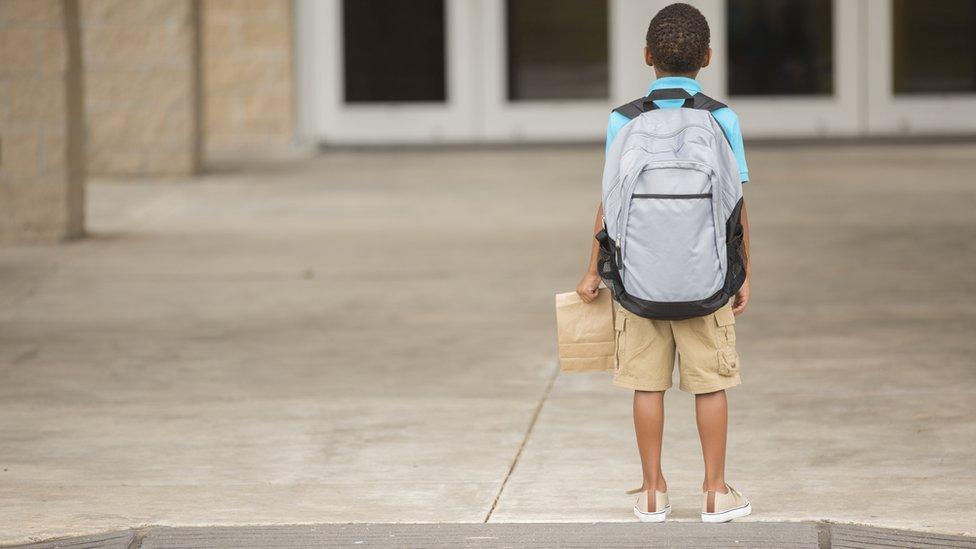
Starting a new school might make you feel a bit nervous, but that's completely normal
"For example, starting or moving school, moving home or sitting a test or exam are all things that could make someone worried and stressed."
But if you're finding it difficult to deal with or you're feeling anxious and uncomfortable a lot of the time, that's when it may be a problem.
"If your feelings of anxiety are very strong or last for a long time, it can be overwhelming," Stephen explains.
How does it happen?
Feeling anxious can be triggered by many different things.
It depends what sort of things make you feel nervous, uneasy or frightened, as nobody is the same.
Daily events like visiting the dentist or taking a test at school might make you feel a bit anxious or stressed. You might also feel worried about something you've seen in the news.
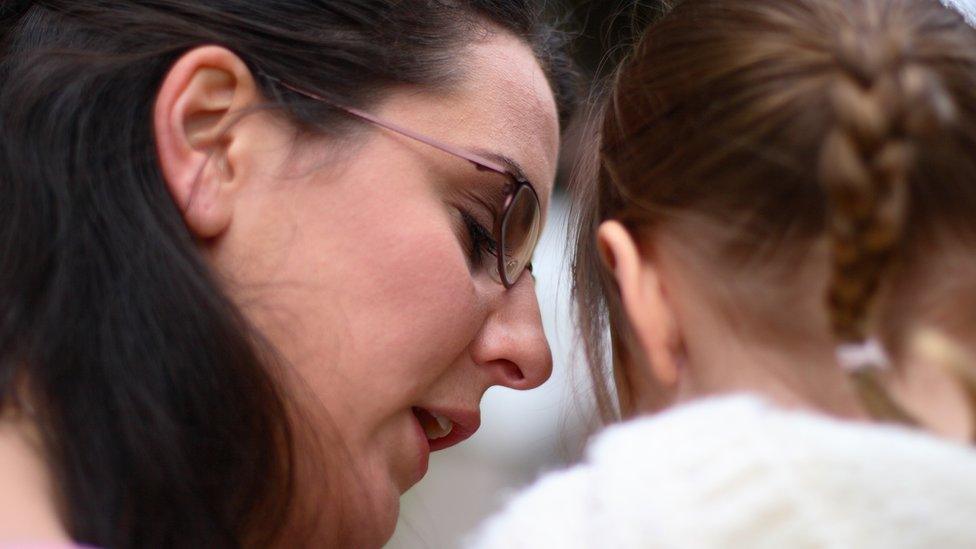
Don't worry if you're not sure why you're feeling anxious. The best thing to do will always be to speak to an adult you trust about it to talk things through
You may find you get scared of something, like small spaces, which other people are not scared of.
In some cases, it might be difficult to work out why you are feeling anxious because it is not something that's obvious straight away, but you know that you just don't feel completely comfortable.
For example, it could be because of something that happened a long time ago to which you may be having a delayed reaction.
The children's charity Childline says: "We have found that children and young people are being struck down with anxiety with causes ranging from personal and family issues, to concerns about world affairs, such as the EU Referendum, the US Election and troubles in the Middle East."
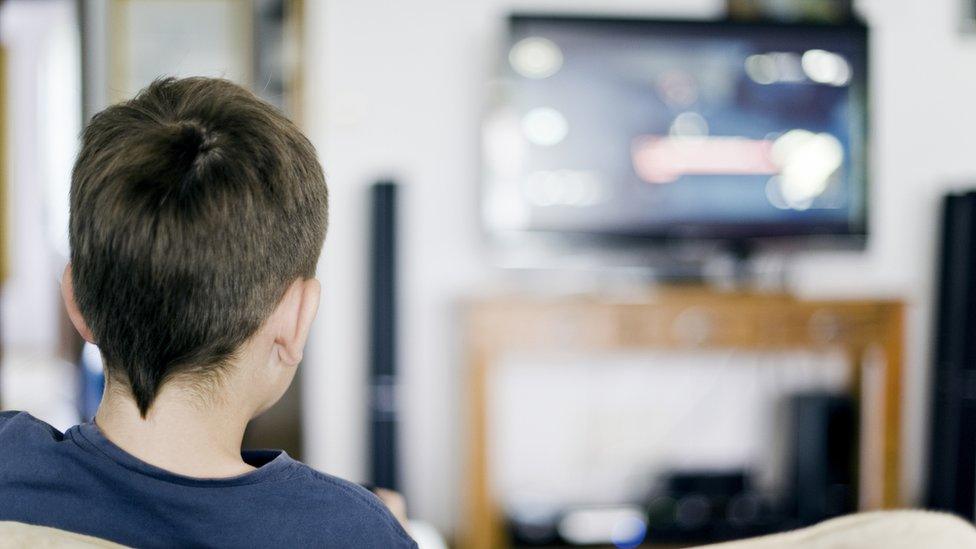
Sometimes things we see in the news might upset us, but you should always talk to an adult you trust if you are worried about anything
How do you know when it could be a problem?
Feeling a little bit anxious or stressed is completely normal, so long as you feel better soon.
If you find you are remaining nervous, worried or scared for a long time - or very regularly - then it could be an issue.
Anxiety can also be a problem if you find yourself feeling worried or nervous about something that hasn't actually happened yet or which might have finished a while ago.

If you find yourself getting worried or scared about things that haven't happened yet, or which happened a long time ago, make sure you speak to an adult you trust about it
Sometimes, people can experience anxiety and depression together. Selena Gomez spoke about how these two conditions affected her, which is why she took time away from work to get better.
Stephen explains: "Often feeling anxious about certain situations can lead to you feeling down. Some people blame themselves for their feelings and end up getting quite upset and down, which can lead to depression."
What is the difference between stress and anxiety?

Things like exams can make many you feel a bit stressed or worried, which is completely normal
Feeling a bit stressed about something is a normal part of everyday life, but different people are able to cope with different amounts of it.
"When it gets too much and these feelings become unmanageable, it can negatively affect our physical and mental health," says Stephen.
"Stress itself is not a mental health problem, but when it last a long time and you become unable to deal with the feeling, it can lead to mental health problems, like depression or anxiety."
WATCH: Top tips for dealing with anxiety
How can anxiety affect you?
Feeling anxious can affect the way you feel and the way your body behaves, but everyone will react differently.
In terms of affecting your emotions, anxiety can make little things feel like really big problems and stop you feeling like your normal self.
It may stop you from being able to concentrate at school or mean you struggle to get to sleep at night.
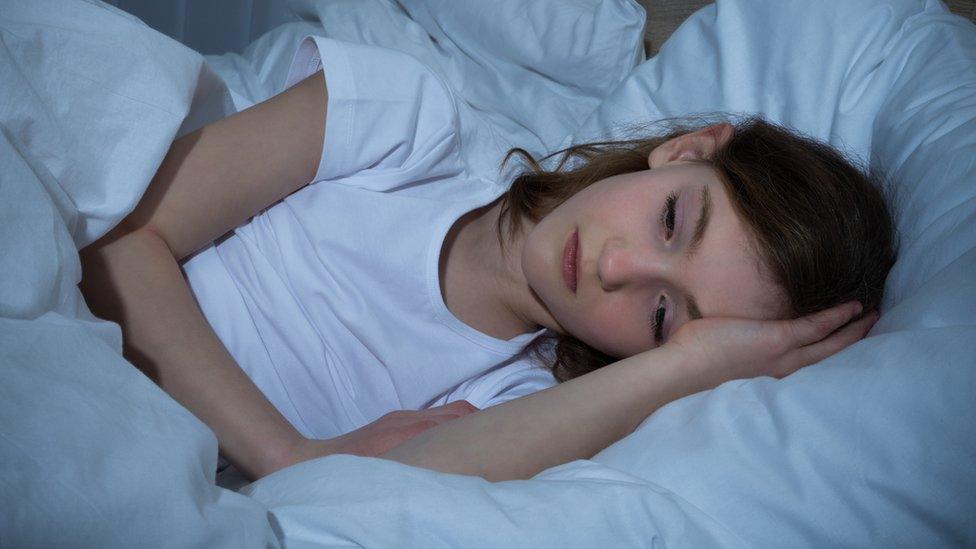
Anxiety might mean you aren't able to sleep as easily at night
If the thing that bothers you doesn't worry other people, it might make you feel a bit isolated, as everyone else seems to be okay.
You may also try to avoid certain situations or people if you're worried about how they might make you feel, which could lead to you cutting yourself off from things that otherwise would make you happy.
Feeling anxious can make the body behave differently too. It can give you butterflies in your stomach, your heart rate might go up or your hands might get clammy. It can cause pain like headaches too.

If you feel anxious, you might notice your hands start to feel a bit clammy
In cases of more extreme anxiety, the body might react by having what is called a panic attack.
This is a more severe, physical reaction.
When someone has a panic attack, their breathing may get quicker or more difficult, and they might start to sweat more or feel dizzy.
They might also become shaky.
CBBC Lifebabble: Ways to help if you feel worried
What should you do if you're feeling anxious?
Many people experience feeling anxious, scared, nervous or stressed from time to time.
But if it's something that is stopping you from living your life happily then the most important thing is that you go to speak to an adult you trust so that they can help you.
If you think that anything described in this guide might be affecting you, follow these tips below.
Don't get cross with yourself
Many people struggle with anxiety, so it is not something you should beat yourself up about.

Stephen says: "Remember no matter how small your problems might feel there is someone who cares and will want to help."
Speak to an adult you trust
If you are worried about feeling anxious fairly regularly or your feelings of anxiety tend to last quite a long time, you should always speak to someone.
They can talk through with you what might be making you feel that way so you can try to work out where the problem might be.
They may take you to speak to a doctor or therapist, whose job it is to help with problems like this.

There are special doctors and therapists who can help you if you're feeling anxious a lot of the time
Do some breathing exercises
If you find yourself feeling anxious, breathing exercises may help you to calm down and feel more relaxed.
Breathe in deeply for three seconds, and out for three seconds, and repeat this for a few minutes. Counting slowly to 10 might also help.

It's important that you keep doing things that you love, like seeing your friends
Clear your head
When you're feeling anxious, it may help to go outside and get some fresh air, go for a walk, watch a film you really like or read a book you enjoy, to help clear your head. Exercise can be really good for this, so go and kick a football about!
Tidying your room might also help things to feel less cluttered and help you to feel more in control.
If you are worried about feeling anxious but you are not sure who to speak to, call Childline on 0800 1111 or visit
Stephen says: "It might seem overwhelming at times but it is really important to tell someone you trust how you are feeling. This could be a parent, friend, teacher or school nurse. There is no right or wrong person to open up to, but it should be someone you feel comfortable talking to."
"If talking to someone you know feels more daunting, then there are phone lines and online forums which can also offer support."
"Remember no matter how small your problems might feel there is someone who cares and will want to help."
- Published31 March 2015
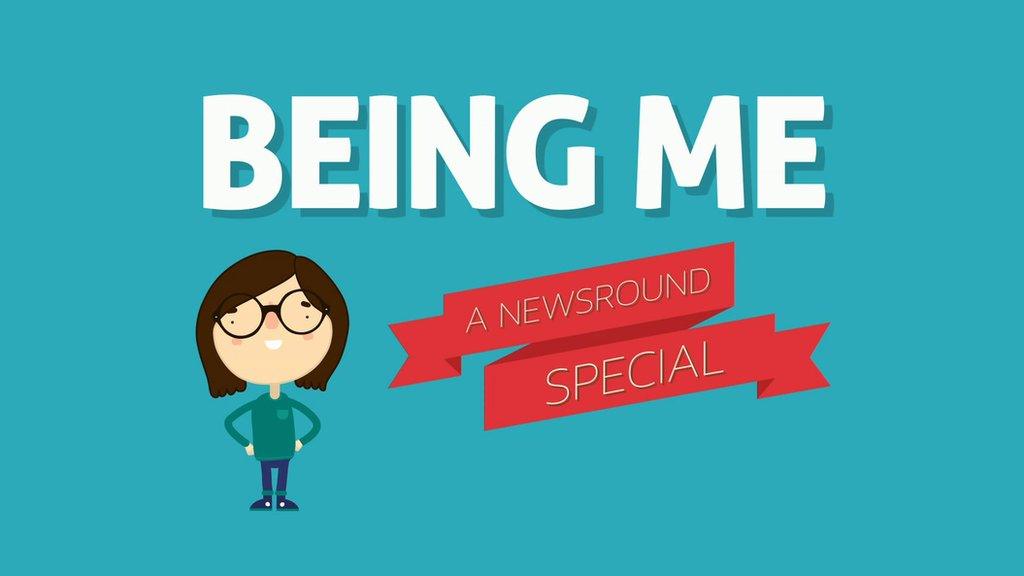
- Published4 October 2016

- Published5 November 2015

